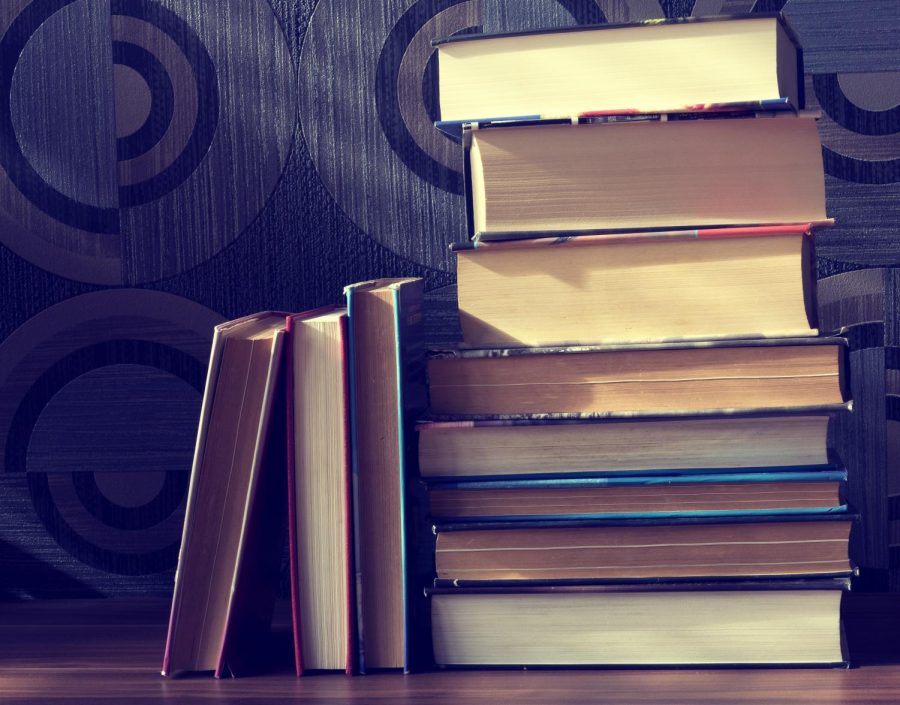Why Should We Question Classic Literature?
We’ve been in school for about a month. Let’s ask some questions about the books our English teachers make us read.
October 1, 2018
What makes a piece of literature a classic? Is it popularity over time that changes a book from being merely “good” to being “classic?” What standards are there to determine whether a book has truly earned this metamorphosis?
Are they books that deal with deep topics related to human nature? If so, how do we determine what topics are worth writing about? Can one argue that all books, to a certain extent, deal with human nature? Do the Harry Potter books not deal with the nature of friendship and human courage? Does Twilight not deal with the nature of love and what makes relationships meaningful? Why is Twilight not considered to be a classic novel? Is the snubbing of Twilight within the classic literature realm a reflection on the novel’s ability to explore the deep topics contained within its pages? Is the classic literature realm perhaps suggesting that the insights Twilight gives into human nature and the mysteries of life are too surface-level to ever give it the merit of a classic? What is their criteria? Why?
Or, perhaps, should we look at the ways books impact people and are perceived? Should this shape our criteria? Should classics be god-like books, ones that put forth new ideas, shape cultures, and that can be analyzed differently every time one reads them? Regarding the last point, can every piece of literature be analyzed, depending on the lens one applies? Can we not scout Twilight for the ways that Stephanie Meyer uses literary devices? Can we not critique it from a feminist angle, as many internet bloggers did in the earlier part of this decade? From these analyses, is it not possible that one could come to multiple conclusions about the themes and literary style of Twilight? Yet, shall we consider the impact of Twilight apart from its ability to be picked apart by internet bloggers? Could we analyze Twilight’s cultural impact and the new ideas it put forth? After all, did Twilight not inspire several hit movies? Did it not become a cultural phenomenon? Did it not introduce the public at large to the idea of sparkly vampires? Can one not argue that the backlash against Twilight was a contributing factor in the rise of young adult books that featured powerful female protagonists? More specifically, ones who were defined by more than their relationships to male characters, something which Twilight was criticized for not doing? Does this not count as a cultural impact, and which would forever shape the young adult genre? If it does count, then why is Twilight not a classic?
Could one still argue that Twilight is not a classic because it did not impact society in a way that was important enough to warrant its status as a classic? Could one argue that Twilight is not a classic because it is not good? Yet, how does one define whether something is “good?” How does one define whether something is “important?” Are these not subjective categories? Is Twilight’s impact seen as unimportant because it pertains to a genre mostly read by teenagers, more specifically teenage girls? Is it possible that there is much literature that has been snubbed from lists of classics because it was written by and for women or members of minority groups? After all, who, throughout history, has decided whether something is a classic? Has it not been the people who have historically had the most power in western society, rich white men? Is it possible that rich white men favor literature written by and for rich white men? If so, how can we possibly judge our list of “classics” to be accurate? After all, is it not true that much of the criteria given for what makes a classic is vague? Could this criteria be used subjectively, to judge only certain works written by and for those with power as “classic?” With this in mind, does it really mean anything for a piece of literature to be classic? Or, does the “classic” label just show that a piece of literature is able to sit comfortably on the shelves of those with power in society?
Even if these books are “classic,” why should they almost exclusively be the books we read in class? After all, if we almost exclusively read books that rich white men call “classic,” does that mean that our English classes favor the perspectives of rich white men? If so, what does this teach us about who has power in society? As teenage girls, what does this teach us about our ability to have a voice in society?



channah • Oct 15, 2018 at 10:17 am
very interesting!